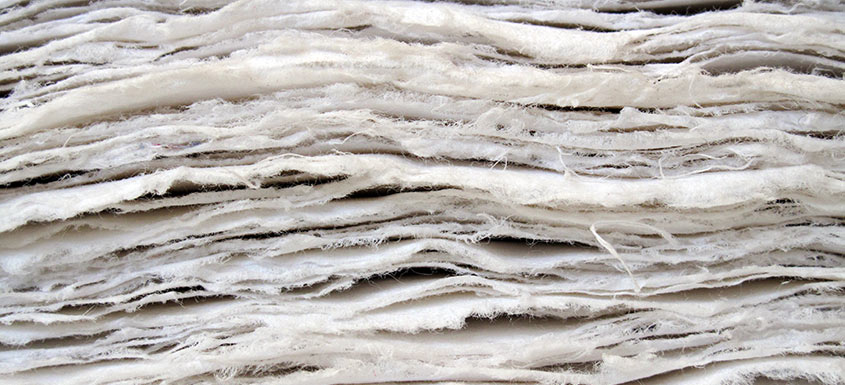Looking back over the last several years, the Canadian northern bleached softwood kraft (NBSK) pulp industry has been on a roller coaster ride.
As well as mill closures and re-starts, changes in product line, client base, and destination markets, there have been a big shift in ownership of market kraft pulp mills. Let’s discuss the various reasons for this and what the future may bring for NBSK producers.
Closures
In January 2020, the Northern Pulp NBSK mill in Abercrombie, Nova Scotia, owned since 2011 by Paper Excellence, was shut down by the provincial government when its plans for an alternative treated effluent disposal was not approved. The mill entered creditor protection a few months later. If their new plan is approved by the province, the owners expect to start a two-year construction phase in 2024 and reopen the mill by the end of 2026.
Another NBSK mill owned by Paper Excellence since 2010 in Mackenzie, B.C. was curtailed in June 2020 and was permanently closed in April 2021.
More recently, two NBSK producers in Western Canada were affected. West Fraser’s NBSK mill in Hinton, Alberta shut one of its two lines in the fall of 2022. Canfor’s Prince George Pulp & Paper NBSK operation in B.C. will be permanently closed at the end of March 2023, mostly due to a lack of suitable fibre. The area around Prince George has been significantly affected by the mountain pine beetle outbreak that started in the 1990s. The nearby Cariboo Pulp & Paper NBSK mill in Quesnel, B.C., a joint venture of West Fraser and Mercer International, also plans at least two months of downtime in 2023 due to a lack of available fibre because of pine beetle and wildfires in the region.
Re-openings
An NBSK pulp mill closed by Domtar in 2005 in Lebel-sur Quévillon, Quebec was purchased by Chantiers Chibougamau in 2018 and re-opened as Nordic Kraft in 2020. An investment of about $440 million was made to get the shuttered facility back in operation, showing that a pulp mill can be brought back from the dead, for a price.
Similarly, the NBSK/NBHK pulp mill closed by Weyerhaeuser in 2006 in Prince Albert, Saskatchewan, and then purchased in 2007 but not operated by Domtar, was purchased by Paper Excellence in 2011. The current plan is to re-start the mill in 2024 on unbleached softwood kraft as a transition to NBSK.
Unbleached kraft
The production of unbleached kraft pulp is a recent trend for Western Canadian softwood kraft pulp mills. The Paper Excellence mills in Howe Sound and Crofton, both in B.C., already swing between unbleached and bleached pulp production, and the Hinton mill has made a permanent change to unbleached pulp. Part of this switch is driven by China’s ban on imports of recovered paper since 2021, which has driven Chinese boxboard manufacturers to purchase virgin unbleached kraft pulp instead of old corrugated containers.
Shifting end-use and export markets
Over the last twenty years, there has been a huge switch in the end-use market for NBSK. If we look at global data for 2003, 61% of NBSK was sold to make printing and writing (P&W) grades of paper and 17% for tissue. By 2020, however, the roles were reversed: 15% for P&W and 55% for tissue! This reflects the decline of printed magazines and catalogues owing to the internet at the same time as increased use of various grades of tissue in developing countries. Looking at the destination of Canadian NBSK over the same time period, US exports declined slightly from 51% to 45%, European exports went from 24% to 0% (likely because of increased European NBSK capacity) and exports to China went from 8% to 35%.
Changes in ownership
Asia-based Paper Excellence has been on a buying spree in Canada since 2010, gaining a large foothold in NBSK, but the Canadian Competition Bureau has intervened in two cases, forcing the sale of two NBSK mills. The first Canadian pulp mill Paper Excellence acquired was Howe Sound Pulp & Paper in 2010, followed by the Northern Pulp and Prince Albert mills in 2011. It acquired the Skookumchuck, B.C. mill from Tembec in 2013. Then it purchased Catalyst in 2019, which produces NBSK market pulp in Crofton, B.C. When it purchased Domtar in 2019, it acquired Domtar’s Dryden and Espanola NBSK mills in Ontario, but was forced to sell the Kamloops, B.C. NBSK mill to Kruger. Finally, the purchase of Resolute Forest Products by Paper Excellence through its Domtar subsidiary, which is expected to be completed in the first half of 2023, will add the St-Félicien, Quebec NBSK mill to its operations, but to satisfy the Competition Bureau, the sale of Domtar’s Dryden NBSK mill to First Quality has just been announced and Resolute’s Thunder Bay, Ontario mill is also up for sale. This means that Paper Excellence will soon own seven NBSK mills (two of them non-operational) out of a total of about 21 in Canada.
What does the future hold?
Among the challenges facing Canadian NBSK producers are the following:
- Age of mills (the average age of Canadian recovery boilers is >42 years) and the cost of maintaining and upgrading aging facilities;
- Climate change, threatening the availability of good fibre because of increased outbreaks of insect infestations and frequency of wildfires;
- Net-zero targets and carbon taxes, which will require capital investments in the coming years to reduce GHG emissions.
- Competition, mostly from Finland, where two brand-new NBSK/NBHK mills have been built in the last six years with a combined softwood capacity of 1.4 million tonnes, equivalent to about five of today’s average Canadian NBSK mills; some of this output is expected to reach the US east coast.
- Increased quality of bleached eucalyptus kraft pulp (BEK) from rapidly-grown plantation forests, pushing softwood reinforcement pulp levels lower; the global BEK market has grown by 5%/year over the last ten years.
The good news is that NBSK is still the best quality wood fibre as a reinforcing pulp, because of the slow-growing trees it is made from. The global NBSK market has also been growing by about 1% per year since 2000. But it is clear that the road ahead is challenging. Strategic decisions will not be black-and-white; i.e., more than just whether to make brown or white pulp!
 Martin Fairbank, Ph.D. Martin Fairbank has worked in the forest products industry for 31 years,
Martin Fairbank, Ph.D. Martin Fairbank has worked in the forest products industry for 31 years,
including many years for a pulp and paper producer and two years with
Natural Resources Canada. With a Ph.D. in chemistry and experience in
process improvement, product development, energy management and lean
manufacturing, Martin currently works as an independent consultant,
based in Montreal. He is also an author, having recently published
Resolute Roots, a history of Resolute Forest Products and its
predecessors over the last 200 years.
Martin Fairbank Consulting
Industry Experience
- Pulp and Paper Technology
- Materials Recycling
- Biorefinery Development
- Manufacturing
- Government Subsidy Programs
Services
- Technical Writing
. White Papers
. Grant Applications
. Explain technical concepts - Scientific Editing
. Review of articles for publication - Project Assessment
. Evaluation of Technologies
. Project evaluation for funding agencies - Pulp & Paper
. Conventional and emerging technologies













